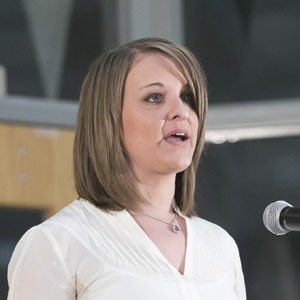
The Power of an iPhone
Laurie, ESOL Teacher - Waterloo ES
Cultural proficiency has encouraged Laurie to take risks and raise her own awareness in order to connect more deeply with others- particularly her students and their families.
Video Transcript
“How does this student have a new iPhone? I heard they haven’t had power at their house for a few days now. The only meals they get are at school. I’m not sure why a new iphone is important.”
These were actual thoughts I had. I made assumptions about this student and family and created a story for them.
I assumed that mom did not care about how her kid was doing in school. I assumed that she was not working hard because her power was turned off. I assumed that education is not a top priority for this family. I assumed that an iPhone was more important than good grades. Whether or not I said these things out loud does not matter. These thoughts ran through my head and I felt frustrated and annoyed that this parent was providing her child with a new iPhone when their power was turned off and her child was struggling with her academics and behavior in school. I felt this way without ever having met the mom, talking to her, or understanding the situation she and her children were facing at home. These thoughts all happened in a matter of seconds after seeing a student showing off her new iPhone to her friends.
I created a story for this student and family. I was trapped by my own thinking and assumptions.
What does this sound like in our schools? “Why does this student have brand new Nikes when mom didn’t send in school supplies?” “I’ve been trying to get in touch with mom about my student’s behavior. I’ve tried everything–email, phone call and conference invitations. I give up!” “My student needs an IEP because she isn’t learning letters and sounds in English and mom and dad can’t help her at home.” “That family is going on a nice vacation over winter break, why are they asking for a backpack of food?”
What are you thinking right now? What assumptions are you making after hearing these quotes? What story are you creating for these students and families?
What is the impact on our relationships with students and families if these assumptions go unchecked? These are all real thoughts that we have had about students and families in our classrooms, schools, and in our community. We are all human and we all have these thoughts. But what can we do about it? How can we, as teachers, mentors, friends, and role models make ourselves more aware of these thoughts, assumptions, and biases in a conscious way in order to halt the cycle of negativity? How can we meet the needs of all of our students and families that come from extremely diverse backgrounds and experiences? I’m here to say, from my experience this year, we do have the power to change our thinking.
My passion is having power over my own thinking.
My passion is increasing my personal awareness of assumptions, biases, and perceptions I make about students and families so they don’t impact relationships and student learning.
This school year, I along with nineteen staff members, worked tirelessly at unraveling the process of making assumptions about students and families through the work in our professional learning community. We worked at understanding and accepting that it is normal and natural to make assumptions based on our experiences, yet when we raise consciousness within ourselves about the assumptions we make, we can choose to learn more and question our own thoughts. We have used this increased self-awareness to build relationships with our students and create equity for all students and learners by not being trapped by our own thoughts and assumptions. My passion is sharing this work with other staff members and creating a learning network amongst the staff where we can learn together, practice together, and hold ourselves and each other accountable.
Returning to my story, remember that student with the new iPhone that has no power at home? Since choosing curiosity over judgement, I’ve learned…Her mom leaves for work before she wakes up everyday. This student is so committed to her education she gets herself ready and walks to school every morning by herself.
That iPhone is the only communication line between her and her mom so her mom knows she made it to school safely. When we as a staff at Waterloo chose curiosity instead of judgement, we were able to provide this student with a phone charger she can keep at school so that being in contact with her mom is never an issue.
Remember that family that is going on a vacation over winter break, but needs a backpack full of food? That family is going on vacation because the Aunt and Uncle invited them and are paying for it. Remember that student who isn’t learning her letters and sounds in English, needs an IEP, and mom and dad don’t help? That student was exposed to English for the first time when she came to Pre-K last year and is an entering level English Learner. Her parents read to her every night in Spanish and ask her questions about the story. Big sister helps her with her Kindergarten work in English. Think about that student who has new Nikes but no school supplies. Those new Nikes are the only way his mom can help him feel like a “normal” fourth grader while she struggles to pay her bills, put food on the table, and has to buy clothes from Goodwill. Remember that mom that will not return a phone call or email about her son’s behavior and didn’t come to his conference? She is a single mother working three wage jobs and raising her two children.
This is the truth. This is what happens when we hold ourselves accountable for our thoughts.
We are able to learn the truth. We give ourselves the power to change our thinking.
What happens when we commit ourselves to this work? We take the time to learn more about a student, family or situation. We build a rapport and relationship with a student and family. We make connections with students. We are self aware and we are able to halt the cycle of negativity. We can free ourselves from the entrapment of our own biases. We are able to see each student as whole person–not as a projection of our harmful assumptions. By doing this, we are able to build a relationship with each student and their family and provide equitable instruction to each of our students. We empower ourselves to change our thinking.
The way people think and speak at our school has literally changed because of this work and I am so privileged to work with this group of individuals who are so committed to our kids and their families.
These are some quotes you might hear in our building today: “I realized how often I immediately make assumptions and draw conclusions based on who the kids are. But my real ah ha moment was when I realized how often I was wrong and how often I was apologizing to kids for blaming them for things they didn’t do. I am really trying to stop myself from immediately going to the negative and start asking questions before correcting anyone. I will continue work on giving kids the benefit of the doubt until I am sure of a situation.” “I think I am more aware and conscious of my thinking and then questioning my thinking-asking myself what might be going on here that I haven’t thought about.”
So as I leave you today, I am going to challenge you. I challenge you, as you get up to enjoy this experience and go back to your classrooms, school buildings, and regular lives; listen more closely to the assumptions you make. I challenge you to free yourself of your biases. Think about your own story and why you are creating a story for a student or family. Consider that what you’re assuming about someone else is not the entire story or is not even the true story. Choose to turn toward curiosity instead of judgement. You have the power to change your thinking.
Related Stories
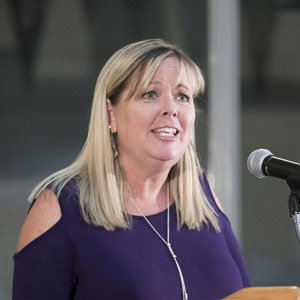
Love...Lost in Translation
Debbi, ELA Teacher - Clarksville MS
What do you do as an English teacher and lover of books and yet is somebody who has made thousands of students hate books?
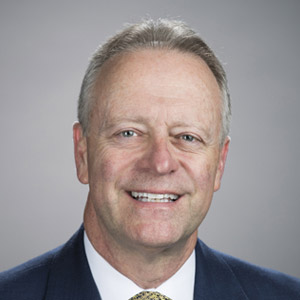
Seeing Our Work Through Student Eyes
Dr. Michael J. Martirano, HCPSS Interim Superintendent
Spending a day as a student at Hammond High School helped Dr. Martirano better understand the academic experience from a student's perspective.
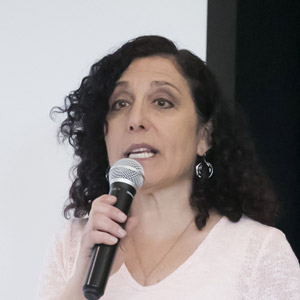
This Six-Word Story Changes as Focus Becomes Student-Centered
Linda Murveit, Minc-fl teacher / RECC ITL, Atholton ES
Linda alters her six-word story from "Young girl starts school already broken," to something far different by listening to her students.
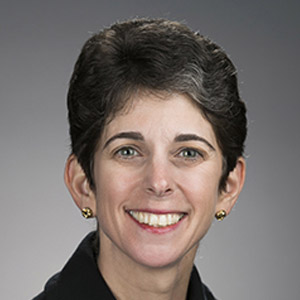
A Student Who Changed My Entire Approach to Teaching
Marcy Leonard, HCPSS Community Superintendent
A student's perspective significantly altered the way this young teacher viewed her role as an educator and ultimately led to many years of providing opportunities for all students.

